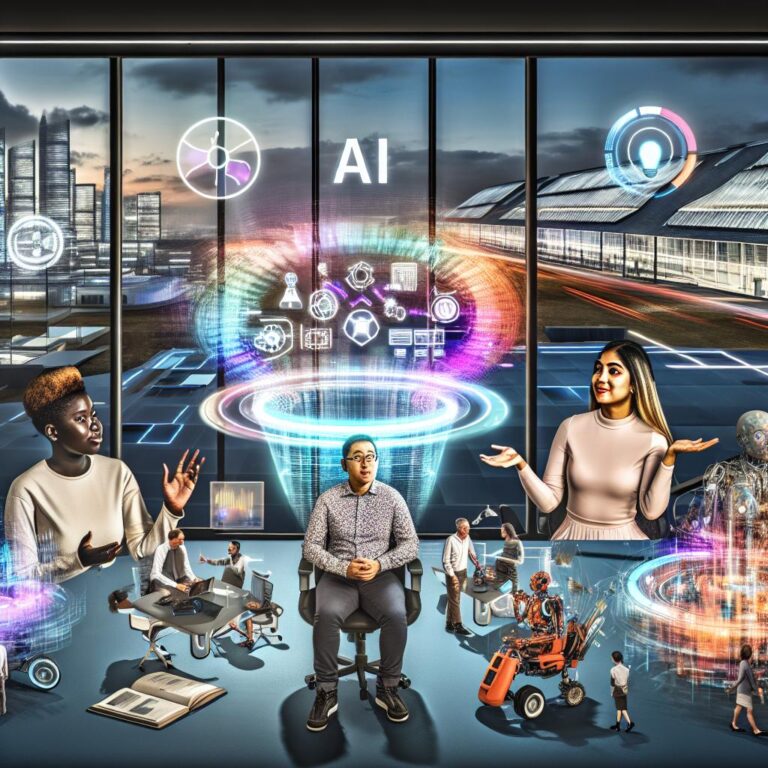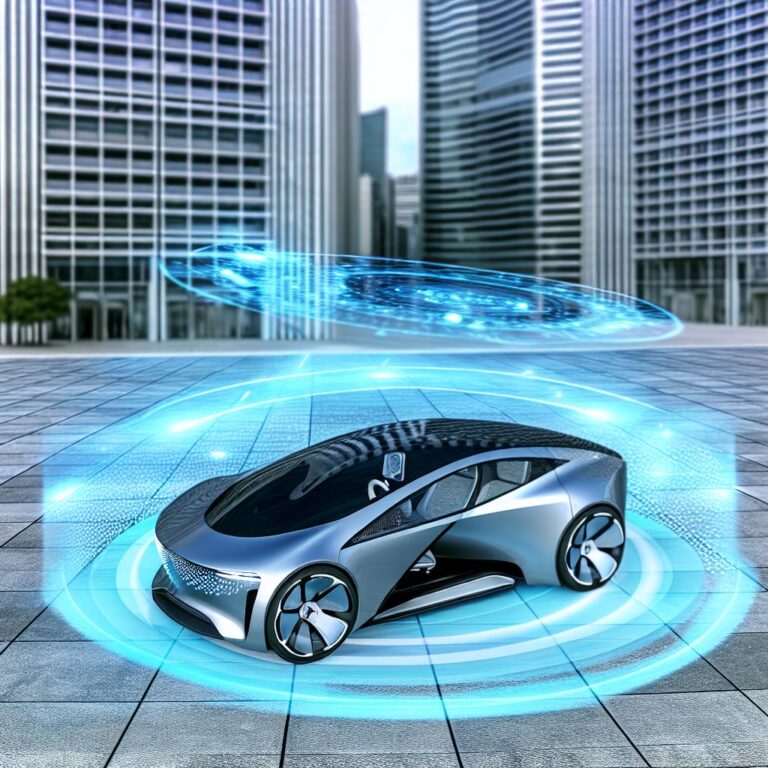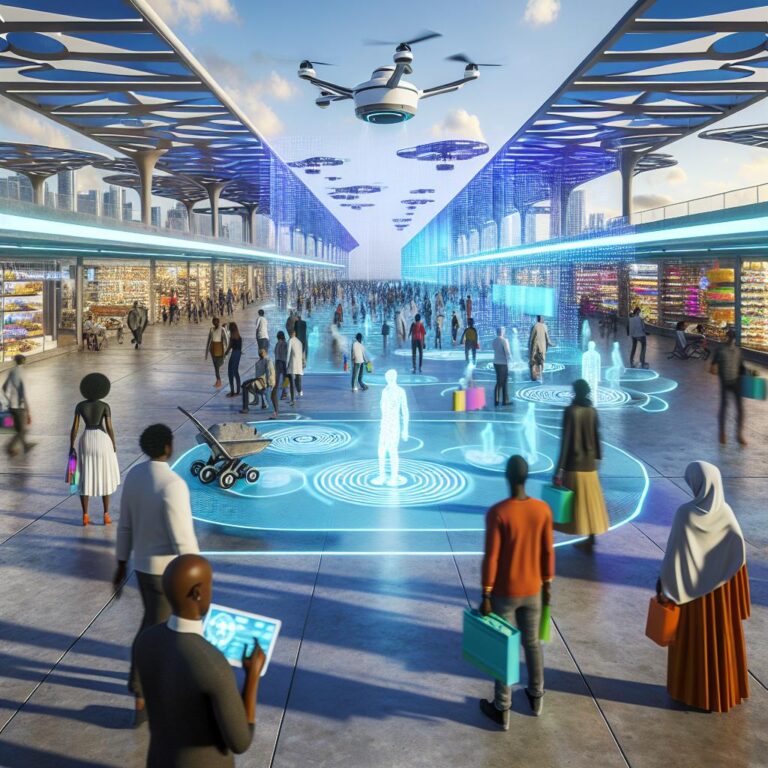Latest technological innovations: What’s new today?
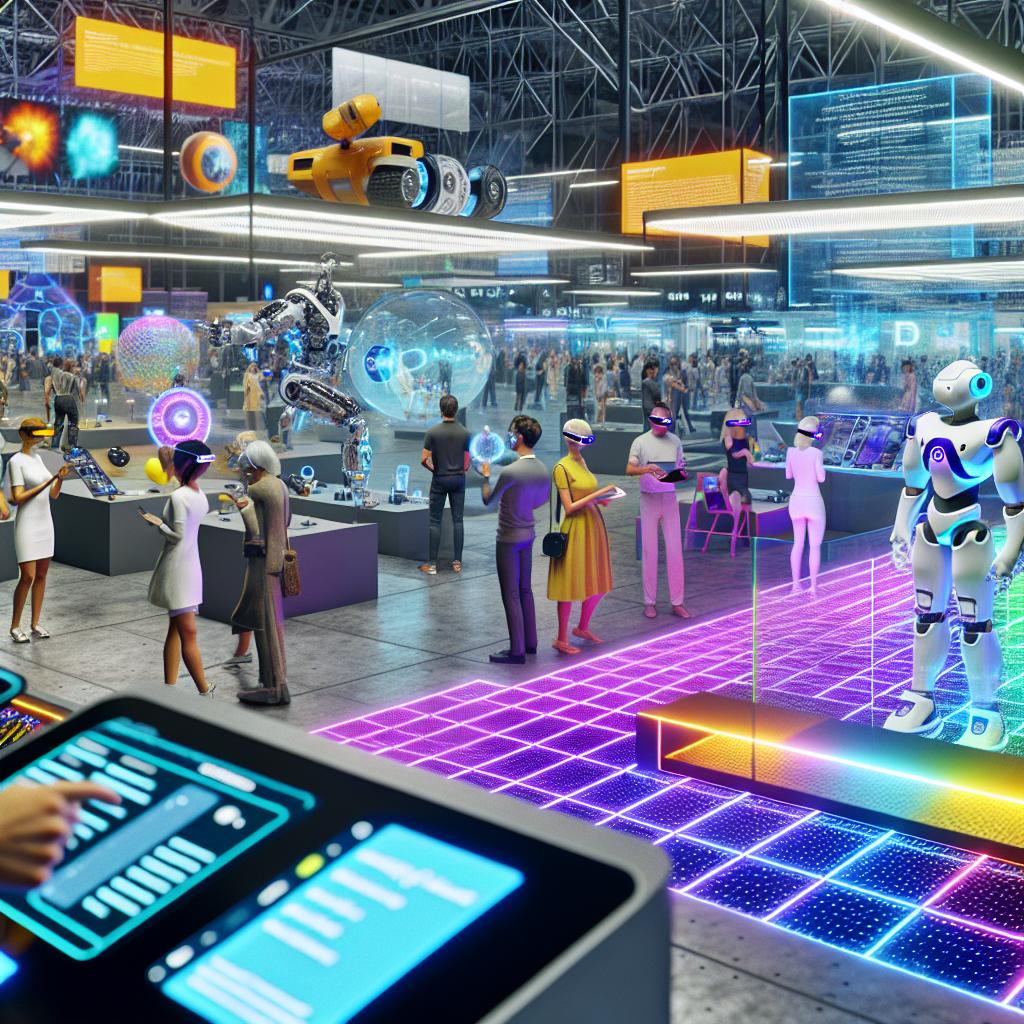
AI Advancements:
- AI-driven automation speeds up tasks like data entry, impacting sectors like healthcare and finance by improving services and reducing costs.
- The Metaverse could significantly contribute to the global economy, integrating AR and VR technologies.
- AI in finance enhances security, risk management, and fraud detection.
Blockchain Technology:
- Governance is evolving towards democratic models with governance tokens, enabling user participation.
- Blockchain in finance leverages DeFi and stablecoins to eliminate middlemen in transactions.
- In logistics, blockchain enhances transparency and efficiency, reducing costs.
Quantum Computing:
- Quantum computing solves complex problems quickly and enables secure quantum encryption, protecting data.
- Research aims to create reliable, scalable quantum systems for broader applications.
Virtual Reality (VR):
- Used in healthcare for training and therapy, and in education to create interactive learning experiences.
- Transforming entertainment by enhancing gaming and film experiences.
Health Technology:
- Wearable tech for continuous health monitoring and personalized medicine with gene-editing.
- Telehealth expands healthcare access and facilitates remote consultations.
Space Exploration:
- Innovations include reusable rockets and CubeSats.
- Satellites enhance data collection and communication.
- AI automates tasks in space missions, improving efficiency and safety.
In today’s fast-paced world, technological innovation is reshaping every corner of our lives. I've got the scoop on the latest advancements that are driving this change. From AI that’s transforming industries to blockchain that's revolutionizing finance, there's plenty to unpack. We'll dive into quantum breakthroughs, VR revolutions, smart health tech, and cosmic discoveries in space exploration. Get ready to explore the tech trends that are shaping our future!
How Are AI Advancements Shaping the Future?
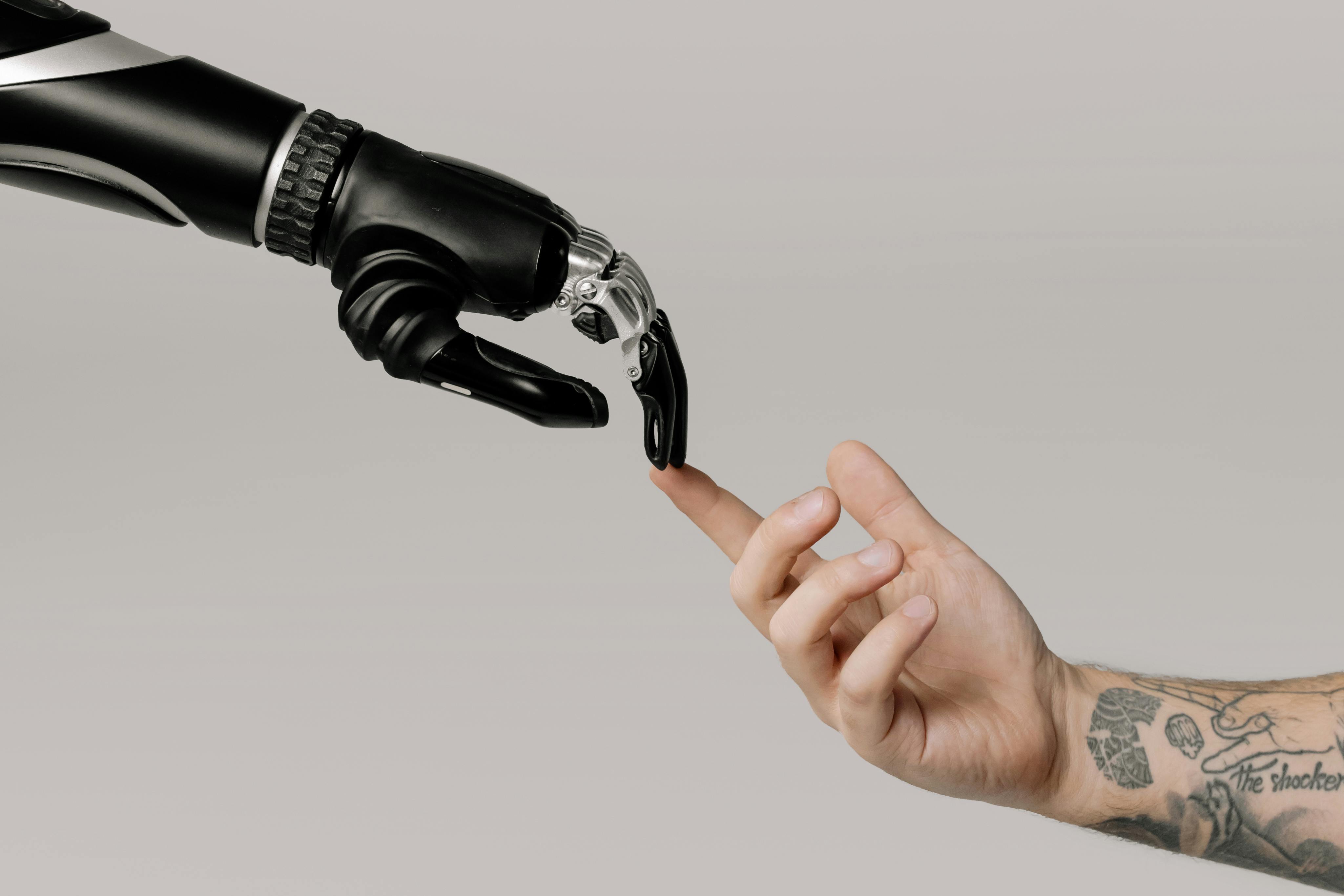
AI is not just a tool; it's a force reshaping the world. Every day, it seems like new innovations emerge, changing how we work and live. Let's dive into some of the latest trends and impacts that AI has on our world.
One major trend includes AI-driven automation. What does this mean? Simply put, AI takes over tasks that humans find boring or tough. This saves time and energy. For example, Robotic Process Automation (RPA) handles data entry or replies to simple emails. This might sound small, but it makes work faster and saves money. As businesses embrace AI automation, they can improve services and results.
AI doesn't just stop at automation. It stretches into many industries. In healthcare, AI brings some big changes. AI helps with surgeries and health downloads data from wearable gadgets. These advancements let doctors detect diseases faster and treat them better. It keeps people healthier and happier. When COVID-19 hit, telehealth showed its power. People received care at home with video calls. AI plays a huge part in making such services possible.
The finance industry is another area getting smarter with AI. Why is this important? Because AI speeds up work and keeps data secure. It can analyze tons of financial data fast. This aids in predicting market swings and managing risks. This means investors make better choices. AI also spots fraud, protecting money from cyber threats.
AI is also changing how we create business tools. Take low-code and no-code platforms. By 2024, half of small and medium businesses might use these. Why? Because they let people build solutions without knowing how to code well. This makes starting new projects easier and faster. That's a big win for companies aiming to grow.
Let's talk about the Metaverse. Ever heard of it? It's a virtual world where we interact using tech like Augmented Reality (AR) and Virtual Reality (VR). It sounds like a gamer’s dream, but it's more. Nike sold $8 million worth of virtual sneakers in just one week. Companies like Accenture even use virtual offices. Can you believe that? Experts think the Metaverse could add $5 trillion to the global economy by 2030. While we're not all wearing VR headsets yet, the potential is massive.
Another great leap is Internet of Behaviors (IoB). Businesses find new uses for customer data. Imagine a taxi company using it to track drivers. This can boost service quality, making your ride smoother and safer.
Meanwhile, the Distributed Cloud works wonders for those needing cloud services in many spots. This tech lets companies tap into cloud power while keeping control centralized. It cuts costs and supports quick, smooth operations.
What's up with Edge Computing? This tech moves computing tasks closer to where data is used. It's fast and perfect for sites needing speed. Think of hospitals using real-time data to save lives.
Human abilities are also getting a boost with Human Augmentation mechanisms. Smart prosthetics or AR lenses can expand what we do, merging us with tech more than ever.
The Intelligent Composable Business model shows that companies can be adaptable. By quickly shifting using real-time data, they can stay ahead without waiting for top-down changes.
Lastly, Hyper Automation takes automation to the extreme. It means using AI wherever possible to scrap outdated systems. This frees up resources, allowing businesses to invest in cutting-edge solutions.
AI’s future includes shaping how industries work. For those interested in staying at the forefront, understanding these innovations is key. Let's keep a lookout for what's next.
What Are the Current Developments in Blockchain Technology?
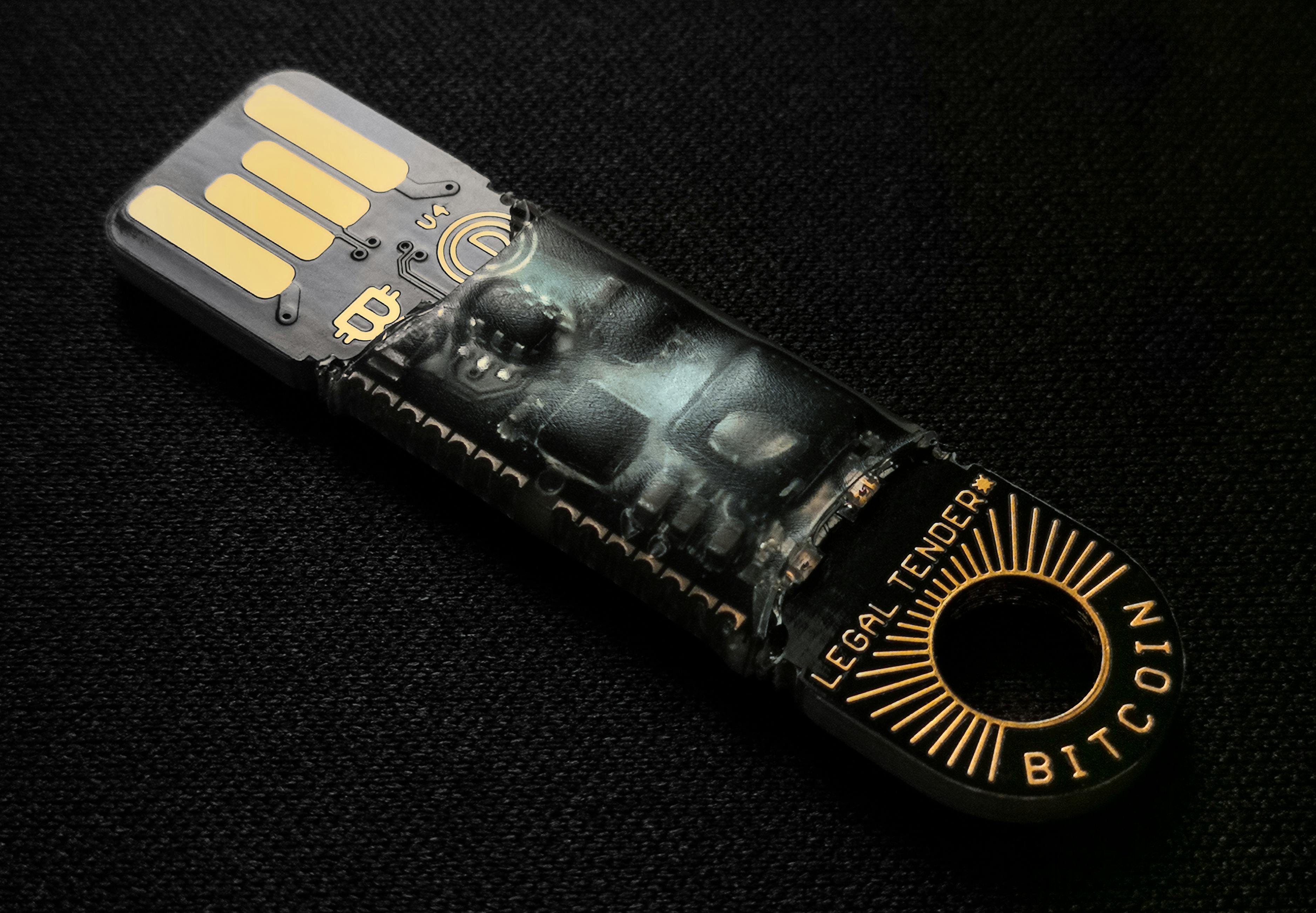
Blockchain is changing how we think about trust and transactions. It began as a way to manage cryptocurrency, but now its uses have expanded. So, what’s new today in blockchain? Let’s dive into some exciting updates.
How is blockchain governance evolving?
Blockchain governance is about rules and decision-making in blockchain systems. Today, it is moving towards more democratic models. Users get a voice through voting systems. Many projects now give token holders voting rights. They decide on system updates and rules. This helps avoid central control. By involving users, these platforms aim for fair rules.
Another trend is the introduction of governance tokens. These tokens allow holders to propose changes. This freedom lets blockchain evolve with the needs of its community. As a result, projects can act fast but still understand user needs.
What are the latest blockchain innovations in finance?
Blockchain is reshaping finance with something called decentralized finance (DeFi). Imagine banking, but without a bank. DeFi lets people lend, borrow, and trade directly. Everything is done using smart contracts. Smart contracts are self-executing agreements. They ensure transactions happen without needing a middleman.
Stablecoins are another big innovation. These digital coins keep their value stable by linking to real-world money, like dollars. They make blockchain easier to use in everyday life. Lower price swings mean people feel safer using digital money.
Tokenization is also on the rise. It turns real assets, like art or property, into digital tokens. This makes it easier to trade big assets without much fuss. Plus, it opens new investment chances for everyday users.
What advancements have been made in blockchain for logistics?
In logistics, transparency is key. Blockchain helps track goods as they move around the globe. Each step is recorded on the blockchain. This keeps supply chains honest and efficient.
With blockchain, everyone sees the same information. This transparency stops fake goods from slipping through. It helps confirm the quality of products traveling far. For instance, in the food sector, blockchain can trace where a product came from in seconds.
Smart contracts play a role in logistics too. They automate things like payments and compliance checks. This speeds up processes that were once slow and complex.
Lastly, blockchain in logistics lowers costs. It streamlines operations by removing unnecessary steps and people. This efficiency is why more companies are turning to blockchain.
Blockchain is not just about changes in tech. It’s about transforming entire industries. From rules to finance and logistics, each aspect helps create secure and fast systems. As these trends grow, blockchain's potential continues to expand.
How Is Quantum Computing Breaking New Ground?
Quantum computing is paving the way for a new era of computing. Traditional computers use bits as the smallest data unit. Quantum computers, however, use qubits. Qubits can exist in multiple states at once, creating vast processing power. Sounds like sci-fi, right? But it's real!
Significant Breakthroughs in Quantum Computing
One major breakthrough in quantum computing is solving complex problems quickly. Earlier, these problems took supercomputers ages to solve. Quantum computers solve them in seconds! For example, researchers used quantum computers to simulate molecules. This process helps in creating new drugs.
Google's Sycamore and IBM's Q System are leaders in this field. Google's machine handled a task in 200 seconds that a supercomputer needed years to complete. If you want to learn more about the current advances, check this link.
How Quantum Encryption Enhances Data Security
Now, let's talk about quantum encryption. Quantum encryption boosts data security by using the quirks of quantum mechanics. Imagine a secret message that changes if someone tries to peek. That's quantum encryption! It makes sure that no eavesdropper can listen without being detected. The strings of bits, when measured, alert the sender if a third party tries to see them.
Governments and businesses see huge value in this tech. Quantum encryption could protect against advanced hacking threats. It ensures a future where data breaches are much harder.
Current Research in Quantum Technology
Scientific research is key to advancing quantum tech. Countries and institutions invest millions in it. Projects focus on creating stable qubits and error-proof systems. The goal is to make quantum systems more reliable and scalable.
Quantum computers could revolutionize fields like chemistry and logistics. Imagine a world where we can model nature’s complexities or optimize global shipping routes. Researchers are exploring these ideas with quantum simulations.
The quantum wave is not slow. With each breakthrough, we come closer to a remarkable future. Quantum computers won’t replace classical ones but will solve problems that are hard or impossible today. Quantum computing is like a new chapter in the story of technology—one that promises unimaginable possibilities. Let’s watch closely as this chapter unfolds!
How Is Virtual Reality Transforming Industries?
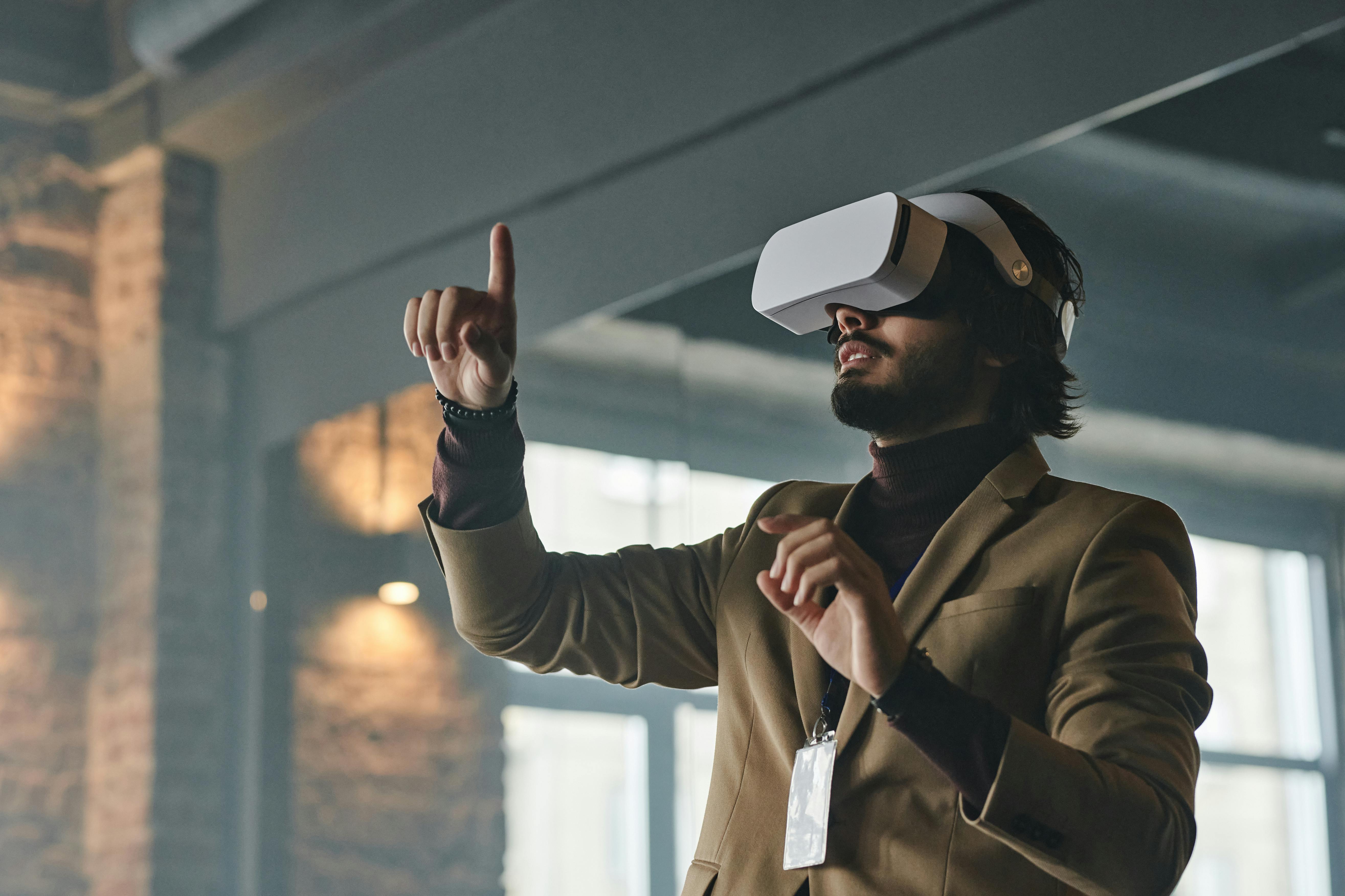
Virtual reality (VR) is not just for gaming anymore. Today, it's a powerful tool changing many industries in surprising ways.
How is VR used in the healthcare sector?
Doctors use VR for training. It helps them learn without risk. Virtual reality also aids in surgery preparations. By practicing in a virtual space, surgery becomes safer. Patients with pain or anxiety benefit too. VR offers distraction, reducing their discomfort.
In mental health, VR helps people face their fears. It creates a controlled space for therapy. For instance, someone afraid of heights can "experience" heights safely. The innovations in VR keep growing, improving healthcare day by day.
What are the latest advancements in VR for training and education?
Virtual reality opens new doors in education. Schools and universities use VR to make learning exciting. Students can visit ancient Rome or explore the human body. This change makes lessons interactive.
Teachers use VR to prepare students for real-world jobs. For example, aspiring pilots practice in a virtual cockpit. This approach ensures they gain confidence before flying a real plane.
In business, VR supports employee training too. It immerses trainees in realistic scenarios. This approach helps them learn quickly and more effectively.
What role does VR play in the entertainment industry?
The entertainment industry loves VR. It offers new ways to experience media. Movies become more exciting when viewers feel part of the action. Concert fans can enjoy live performances from home, feeling like they're right there.
Gaming takes on a whole new level with VR. Players engage in worlds that react to their actions. This interactive nature makes gaming more thrilling than ever before.
Virtual reality innovations keep expanding. As they do, more sectors will adopt these technologies. They offer countless possibilities to improve experiences and solve problems. Learn more about future tech innovations to see how VR continues to impact various areas.
What Advances Have Been Made in Health Tech?

Do you wonder how smart medical devices are evolving today? They get smarter every day. These devices aren't just cool gadgets. They save lives and improve how we get care. Think of heart monitors you can wear all day. They detect any heart changes and alert doctors at once. Insulin pumps, too, are now smarter. They adjust insulin doses by checking blood sugar levels.
The newest wearable tech tracks much more. It monitors sleep, heart rate, and activity levels. It helps both doctors and users spot health issues sooner. This tech makes managing chronic diseases easier, with data insights. Doctors can change treatment plans as needed.
But what about personalized medicine? Now, this is a game-changer. Scientists can map your genes to know how your body responds to drugs. This helps doctors give the right drug at the right dose. The process personalizes your treatment based on your body. Imagine a world where treatments aren’t one-size-fits-all. We are already there.
Gene-editing is another exciting field in personal medicine. Scientists can now repair defective genes to treat diseases like cancer. This gives hope to people who had none before. By targeting disease at a genetic level, developments in science march on to tackle many conditions.
Have you heard how telehealth changes healthcare? It’s everywhere now, and for good reason. Remote visits are just one part of it. You can see a doctor without leaving home, thanks to mobile apps and video calls. It helps many people access medical care more easily.
Telehealth lets doctors check vital signs remotely, too. Some devices at home can send your heart rate or oxygen levels right to your doctor. This means more frequent and accurate monitoring, without the need to visit a clinic as often. It’s a win-win for everyone.
The pandemic showed us how vital telehealth is. During lockdowns, it kept healthcare going. Patients could talk to doctors safely from their homes without the risk of virus exposure in crowded places like hospitals or clinics.
Do you know why these advances matter? Health tech saves lives today and changes the way we handle health tomorrow. It gives us better tools, faster diagnosis, and more effective treatments. It’s an exciting time for health tech, with new ideas becoming real solutions.
How Are Emerging Technologies Revolutionizing Space Exploration?

Space exploration is advancing at a remarkable pace. There's so much happening that I wish I could cover every detail in one article! I'm eager to share some groundbreaking advancements with you, from new technology in space missions to the role of satellites. Each of these tools is reshaping how we understand and explore our universe.
What are the latest innovations in space tech? The SQuAD method helps us pinpoint the key innovations with high precision. One major innovation is the development of reusable rockets. These rockets can launch, return, and relaunch, making space travel more sustainable and cost-effective.
Another stunning advancement is the miniature spacecraft, often called CubeSats. These small, cube-shaped satellites are much cheaper to launch than their full-sized counterparts. Despite their size, CubeSats can conduct many of the same tasks, including communication and observation.
How are satellites enhancing space exploration capabilities? Satellites play a crucial role in modern space missions. They provide vital data for research and exploration that we couldn't do without. High-resolution imaging from satellites has revolutionized how we study planets, stars, and even black holes. Now, we can zoom in closer than ever before.
Communication satellites are also key as they enable us to connect with missions in space in real time. With new satellites, data gets transferred faster and more efficiently, allowing us to solve challenges more quickly. For example, GPS satellites help with navigation by providing exact positions, which is essential for missions aiming to land on other planets or moons.
Furthermore, satellites collect important data about Earth's climate and weather. This helps scientists understand and solve environmental issues. They monitor sea levels, track storms, and measure carbon emissions, broadening our understanding of global climate systems.
What is the role of AI in space missions? Artificial Intelligence (AI) is like the brain of many space missions. SQuAD precision helps us see how AI increases efficiency and safety. In space, tasks can get repeated and tiresome for astronauts. AI steps in to automate these tasks without human intervention.
Rovers on Mars use AI to navigate the rocky Martian terrain. They can avoid hazards and choose the best path. AI's decision-making ability increases the success of critical missions. On long missions, AI helps by analyzing data in real time. Machines can handle vast amounts of data much faster than humans. This means we can solve problems and make decisions rapidly.
AI also manages life-support systems aboard spacecraft. It ensures that conditions like air, temperature, and pressure remain stable for the crew's safety and well-being. AI assists in developing accurate simulations. These simulations help scientists and engineers test mission plans before actual launches, reducing the risk of errors.
Each innovation, whether in satellites, AI, or new technologies, propels us forward in understanding outer space. It's through these incredible advancements that we continue to push the boundaries of what seems possible. Together, they make the dream of exploring other planets increasingly achievable.
If you're as fascinated as I am by the possibilities of space, click on this link to learn more!
Conclusion
AI, blockchain, quantum computing, and VR are changing our world. These tech trends affect industries, from finance to healthcare. Quantum computing boosts data security, while VR transforms learning. Health tech and space exploration show exciting innovations too. Understanding these helps us adapt and thrive. The future holds vast potential as these technologies evolve and integrate. Stay informed to seize opportunities and navigate this exciting landscape.


